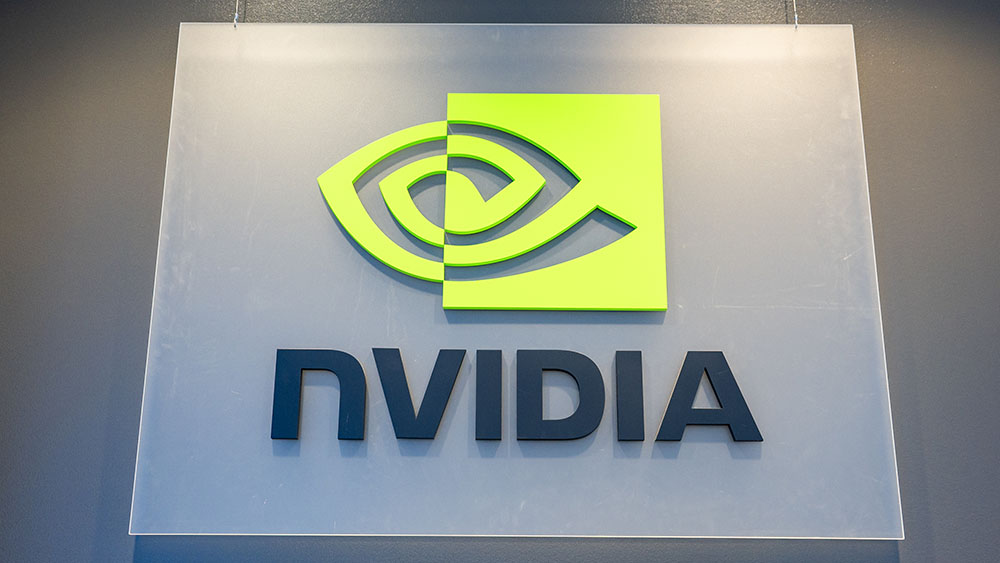U.K.’s GOV.UK One Login faces scandal as whistleblower exposes deep-spun security flaws
04/21/2025 / By Willow Tohi

- A whistleblower exposed systemic vulnerabilities in the U.K.’s GOV.UK One Login digital ID system, including 500,000 “critical” or “high” risks, insecure privileged access and unauthorized offshore development in Romania.
- A GDS cybersecurity expert raised alarms in 2022 about insufficient safeguards, including lack of governance and non-compliant devices, but was disciplined instead of receiving action. Critical assessments in 2022-2023 called for suspension, citing unlawful biometric data handling and fraud risks, but were ignored by GDS leadership.
- Developers in Romania were contracted without proper oversight, with unvetted access to sensitive data. GDS CEO Tom Read later criticized the lack of NCSC consultation and disbanded the independent audit team, increasing reliance on conflicted contractors.
- The whistleblower, protected under Public Interest Disclosure Act (1998), faced disciplinary action after escalating concerns to an MP. Privacy oversight weakened as GDS quietly disbanded the Inclusion and Privacy Advisory Group in 2025.
- Centralizing data access for healthcare, housing and benefits raises breach risks, mirroring past NHS cyberattacks. With 3 million users already enrolled, unresolved flaws threaten public trust as the 2025 full rollout approaches, demanding urgent transparency and accountability.
The U.K.’s flagship digital identity system, GOV.UK One Login, which grants access to critical government services for three million residents, is under fire after a whistleblower revealed systemic security vulnerabilities allegedly present from its 2022 launch. The exposed flaws include insufficient risk management, unauthorized offshore development and critical gaps in data protection — including 500,000 system vulnerabilities classified as “critical” or “high.” Despite internal warnings and confirmed flaws by the National Cyber Security Center (NCSC), the Government Digital Service (GDS) has dismissed concerns, sparking calls for accountability. The scandal spotlights the perils of rapid digital integration in government amid global efforts to modernize public services.
The whistleblower’s allegations
The crisis stems from a GDS cybersecurity expert who, in July 2022, warned leaders of inadequate safeguards in One Login’s architecture. Crucial flaws included the absence of basic governance frameworks and the use of non-compliant devices for system administration, risking malware infiltration. The whistleblower detailed over 10,000 critical vulnerabilities — including insecure privileged access — and claimed developers in Romania, contracted without oversight, had unvetted access to sensitive data. When warnings remained unaddressed, the expert escalated concerns to MP James Sunderland in 2024, invoking the Public Interest Disclosure Act. Instead of action, GDS launched disciplinary measures against the whistleblower, accusing them of leaking “sensitive information externally.”
Timeline of ignored concerns
Internal records reveal a pattern of institutional neglect:
- November 2022: The Cabinet Office Data Protection Officer demanded One Login’s suspension, citing unlawful processing of biometric data and unapproved automated decision-making.
- September 2023: The NCSC reviewed it as having “severe shortcomings” with risks of identity theft and large-scale fraud.
- November 2023: GDS’s new Chief Information Security Officer confirmed the system carried “a high level of risk,” noting 39% of staff with privileged access lacked mandatory security clearance.
Despite these flashing alarms, GDS minimized threats in official letters to Parliament, omitting mentions of NCSC warnings or the DPO’s demands. When MP Sunderland sought clarity on insecure offshore access and unresolved vulnerabilities, GDS framed risks as manageable, claiming “automated testing” and “two-person checks” mitigated issues. The whistleblower, however, noted Gov.uk Notify — a comparably complex service — experienced only 10-12 monthly privileged access incidents, versus One Login’s 6,222 monthly entries in January 2024.
Outsourcing without oversight
The decision to farm out coding work to Romanian contractors without securing GDS CEO Tom Read’s explicit consent exacerbated risks. Read, reviewing an “after the fact” report in August 2022, criticized the lack of NCSC consultation and expressed discomfort with unclear offshore oversight. Compounding this, the external audit firm 6point6 — tasked with assessing One Login’s security — refused to share critical data with GDS’s internal teams, creating a conflict of interest. The GDS then disbanded its independent information assurance team in 2023, relying solely on contractors for assessments.
Whistleblower rights and public trust
GDS’s retaliatory disciplinary action against the whistleblower underscores tensions between whistleblower protections and bureaucratic secrecy. While the expert cited legal safeguards under the 1998 Public Interest Disclosure Act, GDS framed their actions as “unauthorized disclosures,” arguing internal channels had addressed concerns. Meanwhile, the One Login Inclusion and Privacy Advisory Group, which previously vetted privacy risks, was disbanded quietly in early 2025, heightening suspicions of governance backtracking.
Broader implications
The One Login scandal reverberates beyond cybersecurity into debates over centralizing state services. Critics warn that tying diverse services — from healthcare to housing benefits — to a single system amplifies catastrophic breach risks, as seen in the NHS cyberattacks of 2020. The U.K.’s push to deploy a comprehensive digital ID by 2025, framed as a migration toward convenience and anti-fraud measures, now collides with its reputation as a tech-savvy, security-first leader.
A crossroads for government tech in the digital age
As One Login’s rollout nears expansion, the U.K. faces a defining test of balancing technological progress with ethics and oversight. With three million citizens already entrusting it with their data, the unaddressed flaws — amplified by backdoor outsourcing and institutional defiance — underscore a deepening crisis of accountability. The incident recalls historical failures like the NHS data-use oversights in 2015, reminding policymakers that digital systems require not just innovation, but humility and transparency. For now, the system remains operational, but its future — and public trust — hang in the balance as GDS faces growing pressure to admit, then fix its systemic failures.
Sources include:
Submit a correction >>
Tagged Under:
big government, computing, cyber war, dangerous, decpetion, digital identity, digitalization, future tech, Glitch, government tech, information technology, inventions, national security, privacy watch, public trust, truth, United Kingdom, whistleblower
This article may contain statements that reflect the opinion of the author
RECENT NEWS & ARTICLES
COPYRIGHT © 2017 INFORMATIONTECHNOLOGY.NEWS

















